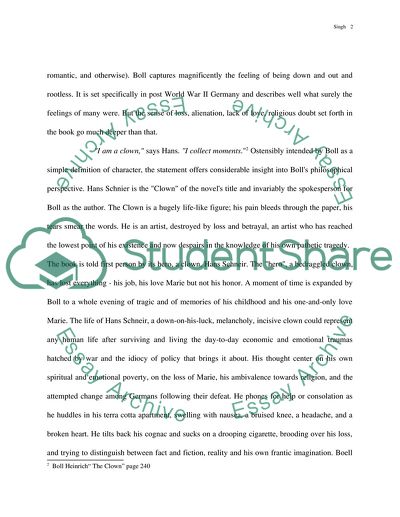Cite this document
(“The Clown by Heinrich Boell Essay Example | Topics and Well Written Essays - 1500 words - 1”, n.d.)
The Clown by Heinrich Boell Essay Example | Topics and Well Written Essays - 1500 words - 1. Retrieved from https://studentshare.org/miscellaneous/1539454-the-clown-by-heinrich-boell
The Clown by Heinrich Boell Essay Example | Topics and Well Written Essays - 1500 words - 1. Retrieved from https://studentshare.org/miscellaneous/1539454-the-clown-by-heinrich-boell
(The Clown by Heinrich Boell Essay Example | Topics and Well Written Essays - 1500 Words - 1)
The Clown by Heinrich Boell Essay Example | Topics and Well Written Essays - 1500 Words - 1. https://studentshare.org/miscellaneous/1539454-the-clown-by-heinrich-boell.
The Clown by Heinrich Boell Essay Example | Topics and Well Written Essays - 1500 Words - 1. https://studentshare.org/miscellaneous/1539454-the-clown-by-heinrich-boell.
“The Clown by Heinrich Boell Essay Example | Topics and Well Written Essays - 1500 Words - 1”, n.d. https://studentshare.org/miscellaneous/1539454-the-clown-by-heinrich-boell.


